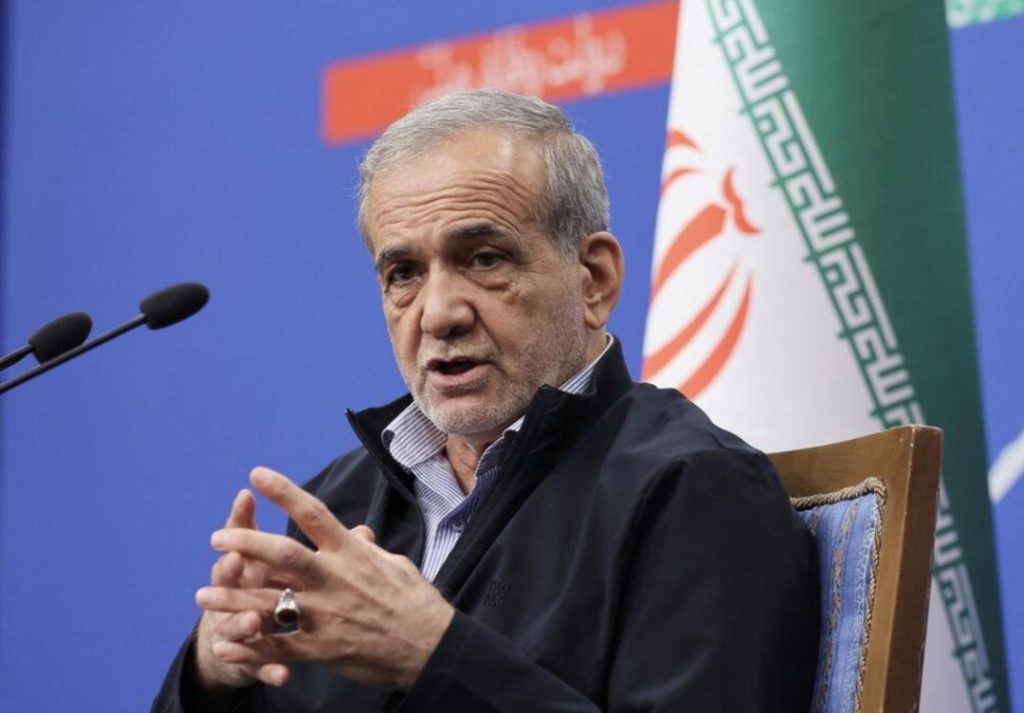
Most Barbaric Act a Human Being Can Do: Iran’s President on Nukes
In a recent statement, Iranian President Masoud Pezeshkian sparked international attention by labeling the use of nuclear weapons as the most barbaric act a human being can do to the planet. This bold declaration has sent shockwaves around the world, with many wondering what drove the Iranian leader to make such a stark assertion.
Pezeshkian’s comments were made during an address to the nation, where he emphasized that Iran’s religious beliefs are deeply rooted in the concept of peaceful coexistence. In Islam, the use of nuclear weapons is deemed unacceptable, as it goes against the fundamental principles of humanity and the preservation of life.
“It is our religious belief that such blind tools are destroying humanity and life,” Pezeshkian said, emphasizing the devastating consequences of nuclear warfare. “We cannot have nuclear weapons, and we will not have them.”
But what prompted the Iranian President to make such a strong statement? The answer lies in the country’s long-standing commitment to peaceful nuclear research. Iran has maintained that its nuclear program is solely for civilian purposes, and that the country has every right to conduct peaceful nuclear research and development.
“We have the right to conduct peaceful nuclear research and use this knowledge in different sectors, such as medicine, agriculture, and industry,” Pezeshkian reiterated. “We are not going to let anyone dictate to us what we can or cannot do in our own country.”
Pezeshkian’s statement has been met with mixed reactions from the international community. While some have praised the Iranian leader for his bold stance against nuclear proliferation, others have criticized him for not doing enough to address the country’s nuclear program.
The debate surrounding Iran’s nuclear program has been ongoing for years, with many accusing the country of pursuing a nuclear weapons program under the guise of peaceful research. The International Atomic Energy Agency (IAEA) has repeatedly raised concerns about the country’s nuclear activities, citing a lack of transparency and cooperation.
Despite these concerns, Pezeshkian maintains that Iran’s nuclear program is purely civilian in nature. The country has consistently refused to suspend its nuclear enrichment activities, citing its right to peaceful nuclear technology under the Nuclear Non-Proliferation Treaty (NPT).
In recent years, tensions have escalated between Iran and the international community over the country’s nuclear program. The Trump administration imposed severe sanctions on Iran, which have had a devastating impact on the country’s economy. The sanctions have also led to a significant decline in Iran’s oil exports, which has had a ripple effect on the global economy.
Despite these challenges, Pezeshkian remains committed to Iran’s nuclear program. In his address, he emphasized the importance of peaceful nuclear research and development, citing the benefits it has brought to the country’s people.
“We have used our nuclear technology to benefit our people, and we will continue to do so,” Pezeshkian said. “We will not let anyone dictate to us what we can or cannot do in our own country.”
Pezeshkian’s statement has sparked a heated debate about the morality of nuclear weapons. While some have praised the Iranian leader for his bold stance, others have criticized him for not doing enough to address the country’s nuclear program.
The debate is far from over, and it remains to be seen how the international community will respond to Pezeshkian’s statement. One thing is certain, however: Iran’s nuclear program remains a contentious issue, and the country’s commitment to peaceful nuclear research and development will continue to be closely watched by the international community.



